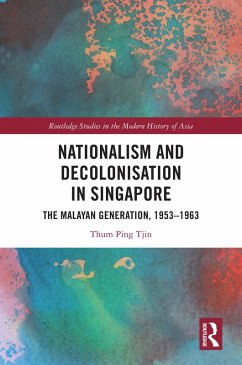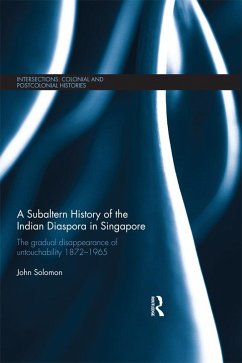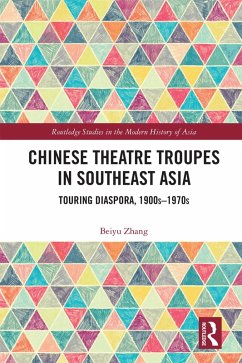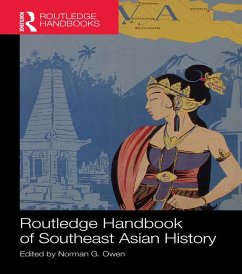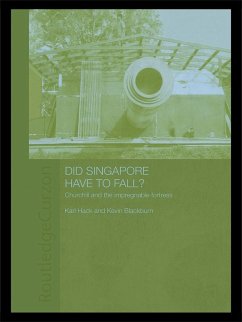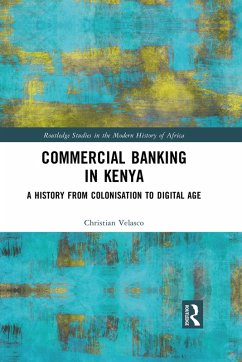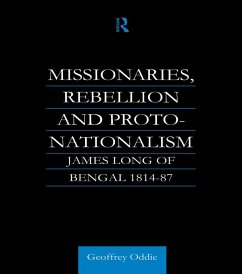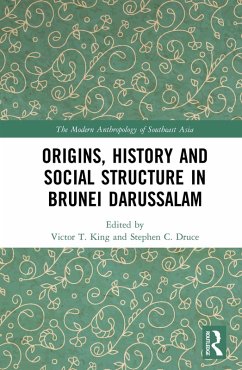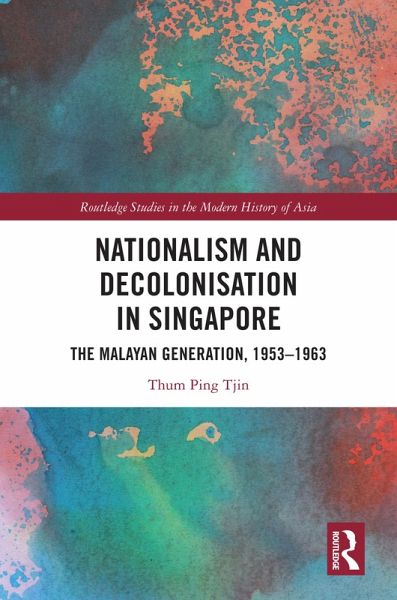
Nationalism and Decolonisation in Singapore (eBook, PDF)
The Malayan Generation, 1953 - 1963
Versandkostenfrei!
Sofort per Download lieferbar
39,95 €
inkl. MwSt.
Weitere Ausgaben:

PAYBACK Punkte
20 °P sammeln!
Nationalism and Decolonisation in Singapore analyses Singapore's decolonisation movement between 1953 and 1963 and provides a framework to understand the deepest and most important unresolved conflicts in Singaporean society.This book demonstrates how these conflicts stem from four unresolved schisms dating from the decolonisation period: race, class, language, and the meaning of self-determination. The author argues that these schisms drove the events of decolonisation, the creation of Malaysia, and Singapore's separation and continue to actively shape Singapore today. Using contemporary Engl...
Nationalism and Decolonisation in Singapore analyses Singapore's decolonisation movement between 1953 and 1963 and provides a framework to understand the deepest and most important unresolved conflicts in Singaporean society.
This book demonstrates how these conflicts stem from four unresolved schisms dating from the decolonisation period: race, class, language, and the meaning of self-determination. The author argues that these schisms drove the events of decolonisation, the creation of Malaysia, and Singapore's separation and continue to actively shape Singapore today. Using contemporary English- and Chinese-language sources from a wide array of perspectives, as well as numerous declassified official documents, this book provides a new approach to the most formative period of Singapore history. It explains in detail the different ideologies, institutions, and conflicts which shaped Singaporean politics and society during decolonisation. In particular, the book focuses on the leaders of the main groups which most heavily influenced Singapore's anti-colonial nationalism - the Chinesespeaking, the working class, and left-wing intellectuals. It looks at Singapore in the context of global movements of nationalism, socialism, and decolonisation and provides a framework which can offer insight into similar attempts by postcolonial governments to construct new nation-states from plural societies.
A novel study of Singapore's independence struggle that incorporates and analyses multiple linguistic, socioeconomic, and political viewpoints, the book will be of interest to researchers of Southeast Asian history and politics and those interested in decolonisation, nationalism, identity, and the politics of race, class, and language.
This book demonstrates how these conflicts stem from four unresolved schisms dating from the decolonisation period: race, class, language, and the meaning of self-determination. The author argues that these schisms drove the events of decolonisation, the creation of Malaysia, and Singapore's separation and continue to actively shape Singapore today. Using contemporary English- and Chinese-language sources from a wide array of perspectives, as well as numerous declassified official documents, this book provides a new approach to the most formative period of Singapore history. It explains in detail the different ideologies, institutions, and conflicts which shaped Singaporean politics and society during decolonisation. In particular, the book focuses on the leaders of the main groups which most heavily influenced Singapore's anti-colonial nationalism - the Chinesespeaking, the working class, and left-wing intellectuals. It looks at Singapore in the context of global movements of nationalism, socialism, and decolonisation and provides a framework which can offer insight into similar attempts by postcolonial governments to construct new nation-states from plural societies.
A novel study of Singapore's independence struggle that incorporates and analyses multiple linguistic, socioeconomic, and political viewpoints, the book will be of interest to researchers of Southeast Asian history and politics and those interested in decolonisation, nationalism, identity, and the politics of race, class, and language.
Dieser Download kann aus rechtlichen Gründen nur mit Rechnungsadresse in A, B, BG, CY, CZ, D, DK, EW, E, FIN, F, GR, HR, H, IRL, I, LT, L, LR, M, NL, PL, P, R, S, SLO, SK ausgeliefert werden.




